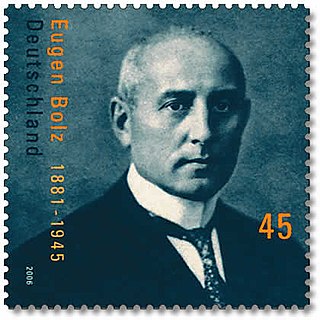
Hamm is a city in North Rhine-Westphalia, Germany. It is located in the northeastern part of the Ruhr area. As of 2016 its population was 179,397. The city is situated between the A1 motorway and A2 motorway. Hamm railway station is an important hub for rail transport and renowned for its distinctive station building.
Paderborn is a Kreis (district) in the east of North Rhine-Westphalia, Germany. Neighboring districts are Gütersloh, Lippe, Höxter, Hochsauerland, and Soest.

Gymnasium is a term in various European languages for a secondary school that prepares students for higher education at a university. It is comparable to the British English terms grammar school and sixth form college and to US English preparatory high school. Before the 20th century, the gymnasium system was a widespread feature of educational systems throughout many European countries.

Paderborn is a city in eastern North Rhine-Westphalia, Germany, capital of the Paderborn district. The name of the city derives from the river Pader and Born, an old German term for the source of a river. The river Pader originates in more than 200 springs near Paderborn Cathedral, where St. Liborius is buried.

Warburg is a town in eastern North Rhine-Westphalia, central Germany on the river Diemel near the three-state point shared by Hessen, Lower Saxony and North Rhine-Westphalia. It is in Höxter district and Detmold region. Warburg is the midpoint in the Warburger Börde. Since March 2012 the city is allowed to call itself 'Hanseatic City of Warburg'.

Carl Friedrich Goerdeler was a monarchist conservative German politician, executive, economist, civil servant and opponent of the Nazi regime. He opposed some anti-Jewish policies while he held office and was opposed to the Holocaust.

PaderbornUniversity is one of the fourteen public research universities in the state of North Rhine-Westphalia in Germany. It was founded in 1972 and 20,308 students were enrolled at the university in the wintersemester 2016/2017. It offers 62 different degree programmes.

Höxter is a town in eastern North Rhine-Westphalia, Germany on the left bank of the river Weser, 52 km north of Kassel in the centre of the Weser Uplands. The main town's population is around 15,000, and with outlying centres, about 30,000. It is the seat of the Höxter district. Historical place names of Höxter are Hoxer and Huxaria.

Eugen Anton Bolz was a German politician and a member of the resistance to the Nazi régime.

Paul Adolf Franz Lejeune-Jung, was a German economist, politician, lawyer in the wood pulp industry, and resistance fighter against Adolf Hitler's Third Reich.

Heinz Nixdorf was a German computing pioneer, businessman and founder of Nixdorf Computer AG.

Ostwestfalen-Lippe is a region in the German state of North Rhine-Westphalia, corresponding to the administrative region of Detmold. Ostwestfalen-Lippe is the eastern part of the region of Westphalia, joined with the Lippe region. The region has a population of 2.07 million, and major cities include Bielefeld, Paderborn, Gütersloh, Herford, Minden and Detmold. The highest point in Ostwestfalen-Lippe is on the side of the Totenkopf.

The Benteler-Arena is a multi-use stadium in Paderborn, Germany, that was built between July 2005 and July 2008, as a replacement for the Hermann-Löns-Stadion. The opening match between SC Paderborn 07 and Borussia Dortmund (1–2) was attended by 15,000 spectators, the stadium's full capacity.

The Prince-Bishopric of Paderborn was an ecclesiastical principality (Hochstift) of the Holy Roman Empire from 1281 to 1802.
King's School was a secondary school in Gütersloh, North Rhine-Westphalia, Germany. Serving the children of British military families stationed in the area, it is the largest school in Service Children's Education. It is the only SCE secondary school in the area and also serves children from bases in Bielefeld, Herford and Paderborn.

Saint Boniface is the Roman Catholic church in Stadtheide, a quarter of the German city Paderborn which belongs to the Deanship of Paderborn in Archiocese of Paderborn.
John Buchan School was a middle school operated by the Service Children's Education located in the ward of Sennelager in Paderborn, Germany. It catered to children aged 9–13 of military personnel and civilian employees in Paderborn as well as Detmold and Rinteln.
The Hellweg net consists of the four Regionalbahn lines in the German state of North Rhine-Westphalia: RB 50, RB 59, RB 69 and RB 89. It has a length of about 370 km. The RB 50 is referred to as Der Lüner, the RB 59 as Die Hellweg-Bahn and the RB 69 and RB 89 together as Die Ems-Börde-Bahn. On 14 December 2008 operations were taken over by eurobahn. Previously these four Regionalbahn services were operated by DB Regio NRW.
Oliver of Paderborn, also known as Thomas Olivier, Oliver the Saxon or Oliver of Cologne, was a German cleric, crusader and chronicler. He was the bishop of Paderborn from 1223 until 1225, when Pope Honorius III made him cardinal-bishop of Sabina. He was the first Paderborn bishop to become a cardinal. Oliver played a significant role in the Crusades as a preacher, participant and chronicler.

The Gymnasium Theodorianum is a grammar school situated in the historic centre of Paderborn, Germany. Succeeding in the tradition of the cathedral school founded in 799, it is among the ten oldest schools in the world. It continues in the ideals of Renaissance humanism, with Latin taught as the primary foreign language and Ancient Greek offered as an additional subject. The school has produced several leading German political, scientific, religious and military figures. It is known locally simply as the “Theo”.
















